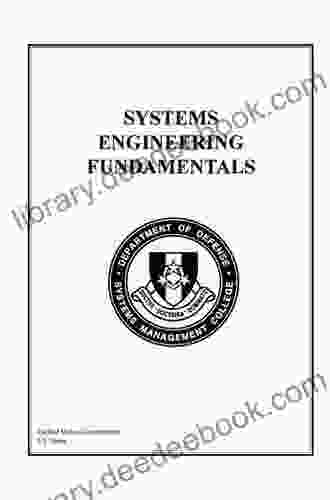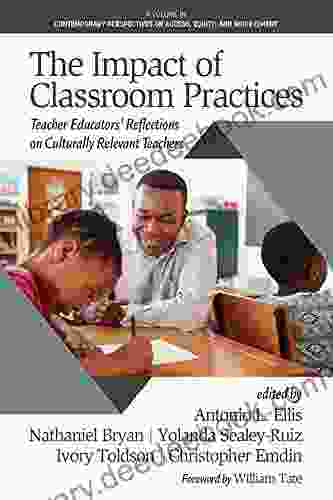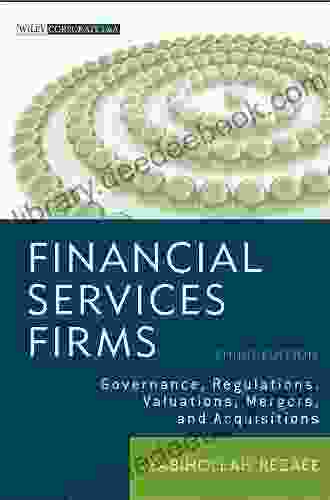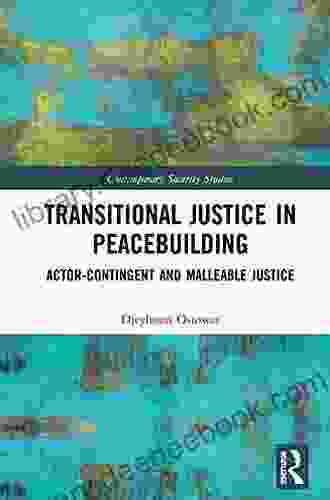The Actor-Contingent and Malleable Justice in Contemporary Security Studies

4.6 out of 5
| Language | : | English |
| File size | : | 3121 KB |
| Text-to-Speech | : | Enabled |
| Enhanced typesetting | : | Enabled |
| Word Wise | : | Enabled |
| Screen Reader | : | Supported |
| Print length | : | 196 pages |
Justice is a central concept in contemporary security studies. It is often invoked to justify the use of force, to evaluate the legitimacy of security policies, and to assess the outcomes of security interventions. However, the concept of justice is complex and contested. There is no single, universally accepted definition of justice, and different actors may have very different understandings of what constitutes a just outcome.
In this article, I explore the concept of actor-contingent and malleable justice in contemporary security studies. I argue that justice is not a fixed and immutable concept, but rather a contingent and malleable one that is shaped by the actions of individual actors and the broader context in which they operate. I begin by discussing the different ways in which justice can be understood in security studies. I then examine the ways in which justice is shaped by the actions of individual actors. Finally, I consider the implications of actor-contingent and malleable justice for contemporary security studies.
Different Understandings of Justice in Security Studies
There are many different ways to understand justice in security studies. Some scholars argue that justice is about the distribution of benefits and burdens. Others argue that justice is about the recognition and protection of rights. Still others argue that justice is about the promotion of human well-being.
These different understandings of justice have important implications for how we think about security. For example, if we believe that justice is about the distribution of benefits and burdens, then we may be more likely to support policies that promote economic equality. If we believe that justice is about the recognition and protection of rights, then we may be more likely to support policies that protect civil liberties. And if we believe that justice is about the promotion of human well-being, then we may be more likely to support policies that promote health, education, and other social goods.
Actor-Contingent Justice
I argue that justice in security studies is not a fixed and immutable concept, but rather a contingent and malleable one that is shaped by the actions of individual actors. By "actor-contingent justice," I mean that the meaning of justice is not determined in advance, but rather is contingent on the actions of the actors involved in a particular situation.
For example, consider the case of a peacekeeper who is faced with a group of armed rebels. The peacekeeper may have a general understanding of justice as the promotion of human well-being. However, the peacekeeper's understanding of justice may be contingent on the specific situation he or she is facing. If the rebels are posing an immediate threat to civilians, the peacekeeper may believe that justice requires the use of force to stop them. However, if the rebels are not posing an immediate threat, the peacekeeper may believe that justice requires a more peaceful approach, such as negotiation or mediation.
The actor-contingent nature of justice has important implications for security studies. It means that there is no single, universally accepted definition of justice. Instead, the meaning of justice is constantly being negotiated and contested by the actors involved in a particular situation.
Malleable Justice
I also argue that justice is malleable, meaning that it can be shaped and reshaped by the actions of individual actors. By "malleable justice," I mean that the meaning of justice can be changed over time through the actions of the actors involved in a particular situation.
For example, consider the case of a country that is transitioning from a period of conflict to a period of peace. The meaning of justice in this country may be very different in the post-conflict period than it was during the conflict. During the conflict, justice may have been understood as revenge or retribution. However, in the post-conflict period, justice may be understood as reconciliation or forgiveness. The meaning of justice has been malleable, changing over time in response to the actions of the actors involved in the peace process.
The malleable nature of justice has important implications for security studies. It means that justice is not something that is fixed and immutable. Instead, justice is something that can be shaped and reshaped by the actions of individual actors. This means that it is possible to work towards a more just world, even in the most difficult of circumstances.
Implications for Contemporary Security Studies
The actor-contingent and malleable nature of justice has important implications for contemporary security studies. First, it means that there is no single, universally accepted definition of justice. Instead, the meaning of justice is constantly being negotiated and contested by the actors involved in a particular situation. This makes it difficult to develop a comprehensive theory of justice that can be applied to all cases.
Second, the actor-contingent and malleable nature of justice means that it is possible to work towards a more just world, even in the most difficult of circumstances. This is because the meaning of justice can be changed over time through the actions of individual actors. This gives us hope that we can create a more just and peaceful world, even in the face of great challenges.
In this article, I have explored the concept of actor-contingent and malleable justice in contemporary security studies. I have argued that justice is not a fixed and immutable concept, but rather a contingent and malleable one that is shaped by the actions of individual actors and the broader context in which they operate. This has important implications for how we think about security and how we work towards a more just world.
4.6 out of 5
| Language | : | English |
| File size | : | 3121 KB |
| Text-to-Speech | : | Enabled |
| Enhanced typesetting | : | Enabled |
| Word Wise | : | Enabled |
| Screen Reader | : | Supported |
| Print length | : | 196 pages |
Do you want to contribute by writing guest posts on this blog?
Please contact us and send us a resume of previous articles that you have written.
 Book
Book Novel
Novel Library
Library Newspaper
Newspaper Shelf
Shelf Glossary
Glossary Bibliography
Bibliography Foreword
Foreword Preface
Preface Synopsis
Synopsis Annotation
Annotation Footnote
Footnote Manuscript
Manuscript Codex
Codex Tome
Tome Bestseller
Bestseller Classics
Classics Library card
Library card Narrative
Narrative Memoir
Memoir Encyclopedia
Encyclopedia Dictionary
Dictionary Character
Character Librarian
Librarian Card Catalog
Card Catalog Stacks
Stacks Periodicals
Periodicals Research
Research Scholarly
Scholarly Lending
Lending Journals
Journals Special Collections
Special Collections Interlibrary
Interlibrary Literacy
Literacy Study Group
Study Group Dissertation
Dissertation Awards
Awards Reading List
Reading List Book Club
Book Club Textbooks
Textbooks Mika Lane
Mika Lane William C Lewis
William C Lewis Kim Schaefer
Kim Schaefer Eugene H Ware
Eugene H Ware R L Ullman
R L Ullman Robert Steele
Robert Steele Chris Mares
Chris Mares Mina Lee
Mina Lee Django Reinhardt
Django Reinhardt Kell Frillman
Kell Frillman Frank Karpiel
Frank Karpiel Theresa Anthony
Theresa Anthony Sam Knowles
Sam Knowles T V Reed
T V Reed Sibel Beadle
Sibel Beadle Fred Pearce
Fred Pearce Sarah Naish
Sarah Naish David Benioff
David Benioff Bill Yenne
Bill Yenne George Orwell
George Orwell
Light bulbAdvertise smarter! Our strategic ad space ensures maximum exposure. Reserve your spot today!

 W.B. YeatsThere Wuz Volume IV: A Humorous Journey through the Wit and Wisdom of Robert...
W.B. YeatsThere Wuz Volume IV: A Humorous Journey through the Wit and Wisdom of Robert...
 Hank MitchellSystems Engineering Fundamentals: A Comprehensive Guide for the United States...
Hank MitchellSystems Engineering Fundamentals: A Comprehensive Guide for the United States... Marc FosterFollow ·10.8k
Marc FosterFollow ·10.8k Arthur C. ClarkeFollow ·4.6k
Arthur C. ClarkeFollow ·4.6k Michael SimmonsFollow ·12.5k
Michael SimmonsFollow ·12.5k Jayden CoxFollow ·8.7k
Jayden CoxFollow ·8.7k Gerald BellFollow ·10.3k
Gerald BellFollow ·10.3k Oscar BellFollow ·15.2k
Oscar BellFollow ·15.2k H.G. WellsFollow ·7.9k
H.G. WellsFollow ·7.9k Garrett BellFollow ·13.9k
Garrett BellFollow ·13.9k

 Ralph Ellison
Ralph EllisonHealth Care Global Viewpoints: Samantha Whiskey
Samantha Whiskey is a global health...

 Gabriel Garcia Marquez
Gabriel Garcia MarquezTeacher Educators' Reflections on Culturally Relevant...
In today's...

 Levi Powell
Levi PowellSustainable Project Management: The GPM Reference Guide...
In today's rapidly changing world,...

 Isaac Bell
Isaac BellThe Captivating World of "Dreaming Awake Falling Under"
A Journey Through...

 Clarence Brooks
Clarence BrooksGovernance Regulations Valuations Mergers And...
In today's complex and ever-changing...
4.6 out of 5
| Language | : | English |
| File size | : | 3121 KB |
| Text-to-Speech | : | Enabled |
| Enhanced typesetting | : | Enabled |
| Word Wise | : | Enabled |
| Screen Reader | : | Supported |
| Print length | : | 196 pages |










